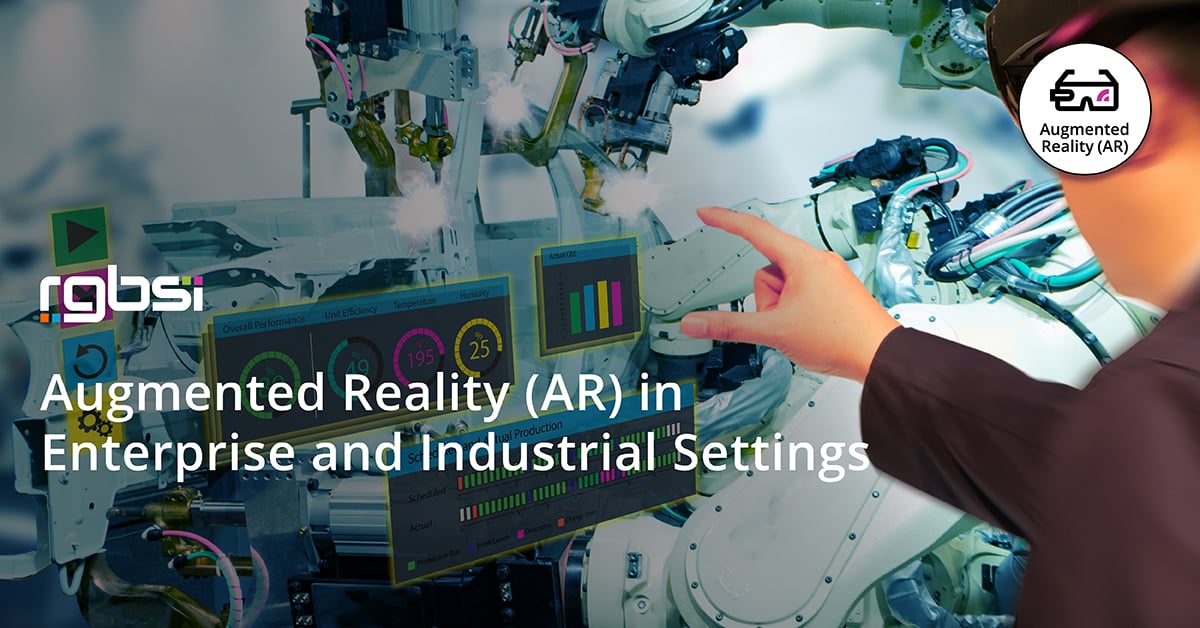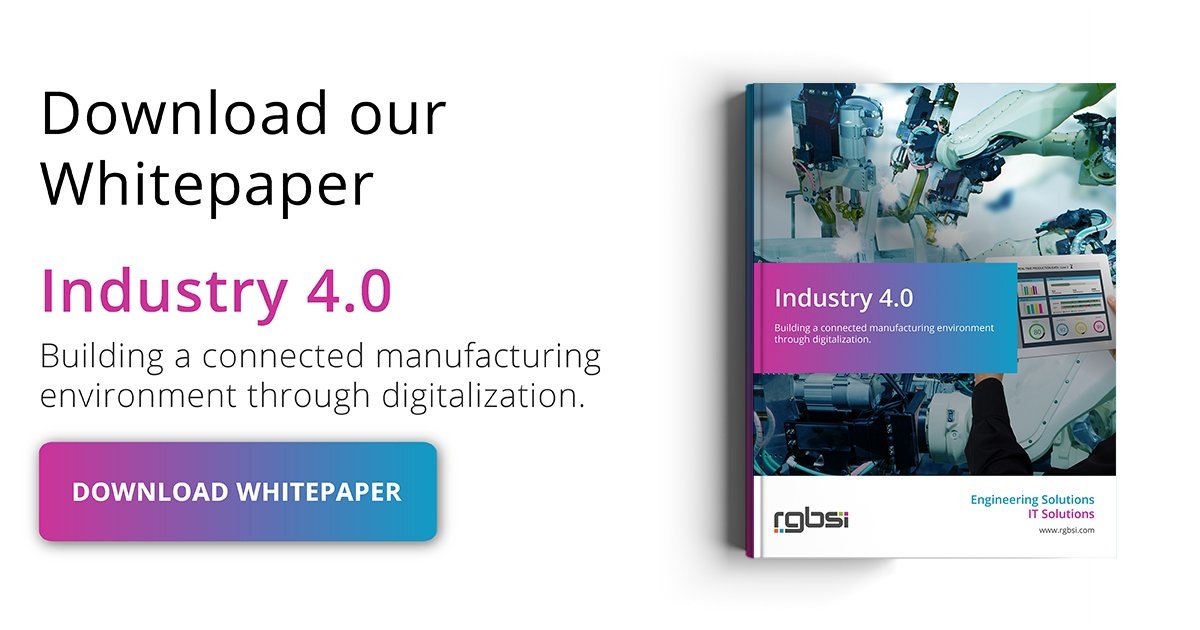
What is augmented reality (AR)?
Augmented reality (AR) is a technology that works by overlaying digital objects and information on a screen (either a tablet, phone or headset) that is capturing the physical environment in real-time.
When thinking of augmented reality (AR), gaming applications come to mind as best popularized by the hit game Pokémon Go.
In enterprise and the industrial settings, augmented reality (AR) is used to train new workers on assembly lines in factories and to train industrial workers to perform maintenance and repair operations for different industrial products.
How is augmented reality (AR) used in Industry 4.0?
In Industry 4.0, augmented reality is transforming the product design lifecycle. Designers and engineers can build a product with detailed real world specs. Whether it’s a piece of equipment with a designated footprint in a manufacturing facility or a product that is meant to fit in a specific sized shipping container, virtual prototype testing is possible with AR.
AR and Industrial Manufacturing
Applications in industrial manufacturing substitute digital instructions for traditional paper manuals. More and more companies are exploring AR headsets that overlay digital instructions on top of a work area which removes the need for operators to toggle between viewing machinery and instructions. Use of AR promotes worker safety by providing important maintenance updates on the functions of machinery.
AR and Quality Control
Applications in digital quality control allow factories to verify component placement in assembly by validating the work instruction well in advance. AR makes the verification process much faster than traditional methods.
AR and Aviation
Applications in aviation include virtually examining a running engine in motion during the product design and development phase. Aside from design and manufacturing activities for planes, AR is being used for passenger entertainment. Air France has virtual headsets for passengers to watch 2D and 3D TV programs or to experience a virtual journey, such as taking a tour of a Parisian museum during a flight.
AR and Logistics
Applications in logistics increase operational efficiency in the areas of smart warehousing, routing, and transporting goods. AR glasses can be worn by warehouse employees to identify the shortest path to locate and select items needed for shipments.
Read more: 6 Engineering Applications of Augmented Reality
Advantages of using Augmented Reality (AR) in Industry 4.0
The direct benefits of using augmented reality in enterprise and industrial settings is to optimize handling and operation times, ensure a proper use of materials, and execute the right task at the right time. AR also helps workers avoid time consuming manual operations involving locating and identifying different components with a manual. With AR powered headsets, this work can be accomplished hands free.
Industry 4.0 technicians and workers in a company can watch real time information and get immediate feedback from the work they are performing to make corrections more efficiently. AR also can provide field technicians with information about the problem a machine or service is having, giving them the opportunity to overlay a digital user guide or open a video channel for feedback from a more experienced technician.
Overall, augmented reality enhances industrial training and learning while reducing risks and costs in Industry 4.0.
About RGBSI
At RGBSI, we deliver total workforce management, engineering, quality lifecycle management, and IT solutions that provide strategic partnership for organizations of all sizes.
Engineering Solutions
As an organization of engineering experts, we understand the importance of modernization. By pairing modern technology with design expertise, we elevate fundamental engineering principles to accommodate growing product complexity requirements. We work with clients to unlock the full potential of their products and enable future innovation. Learn more about our automation and digital engineering services.
IT Solutions
We work with clients to support IT related areas of application development, ERP, infrastructure, project management, and digital engineering.
Learn more about our IT solutions.











